What Does MCA Mean on a Battery? (Marine Breakdown)
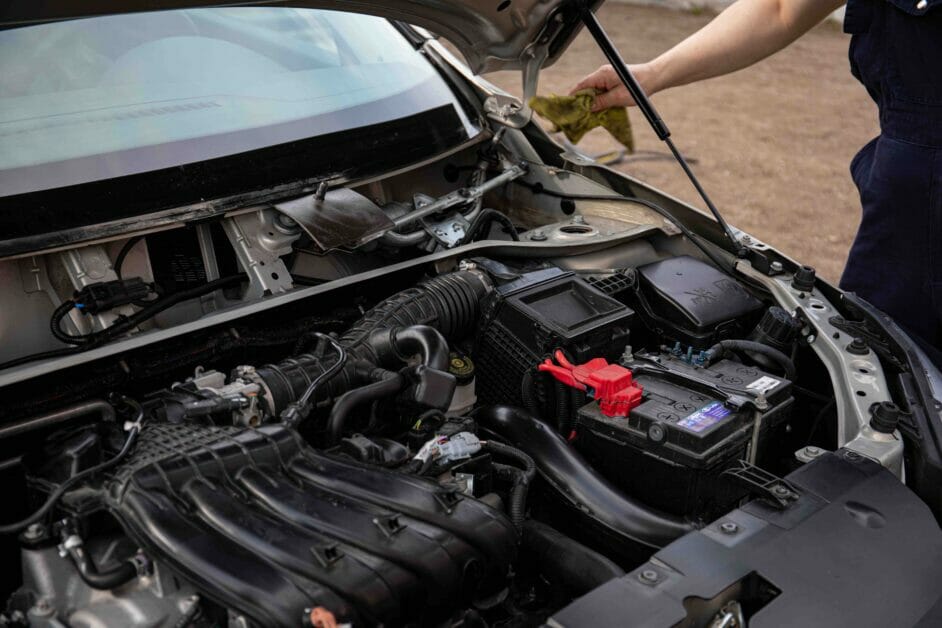
Are you confused about what the letters “MCA” mean on your battery? It can be a mystery for many people, but don’t worry – I’m here to help!
Key Takeaways – MCA stands for “Marine Cranking Amps.” It measures your battery’s ability to start your engine in cold temperatures. While most batteries include a Cold Cranking Amp (CCA) rating, which measures starting power in below-freezing temperatures, MCA is specific to marine applications. It considers the unique demands of starting an engine on a boat.
But what does this mean for you? Understanding your battery’s MCA rating can help you choose the right battery for your needs.
If you frequently use your boat in colder temperatures, you’ll want a battery with a higher MCA rating to ensure reliable starts. Stick around, and I’ll explain more about how MCA is calculated and why it matters.
What is MCA on a Battery?
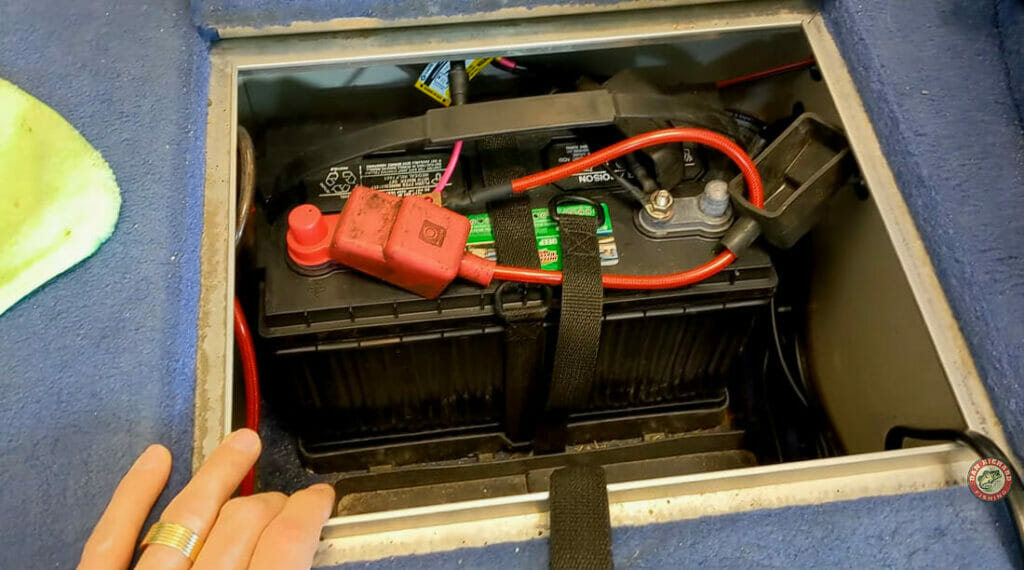
MCA stands for “Marine Cranking Amps,” a unit of measurement used to determine the ability of a battery to start an engine.
Specifically, MCA measures the number of amps a battery can deliver at 32°F (0°C) for 30 seconds before the voltage falls below a specified level.
In general, the MCA rating of a battery indicates how much power it can supply in cold weather, which is crucial for marine applications such as boats and yachts.
That said, it is one of the essential parameters to consider when choosing a battery that can reliably start your engine.
Understanding The MCA Rating on a Battery
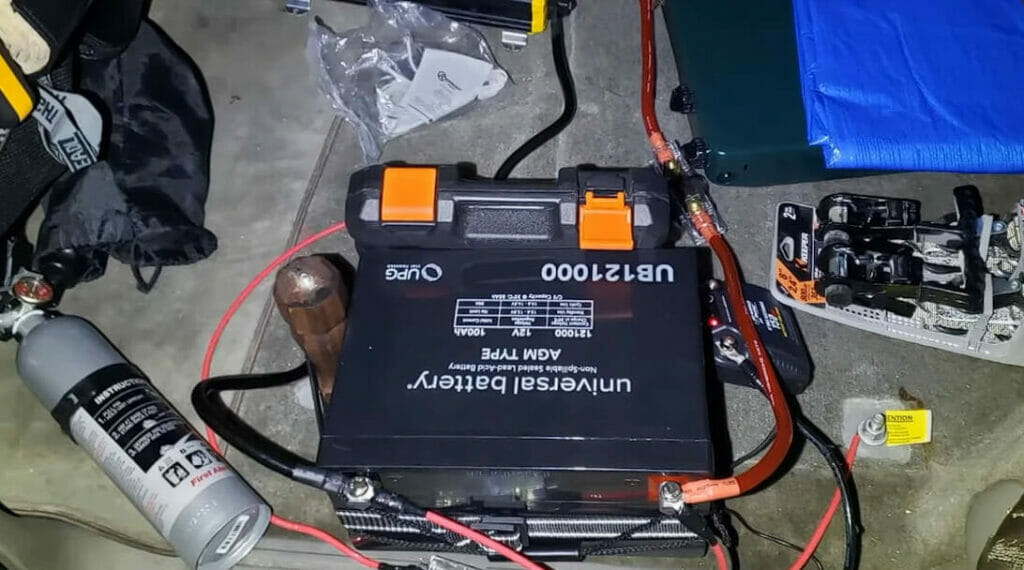
When understanding the MCA rating on a battery, it’s important to know what it means and how to interpret it.
Interpreting MCA Ratings:
- Higher is better: The higher the MCA rating, the more powerful the battery is. A battery with a higher MCA rating will be able to deliver more amps and will be better at starting an engine in cold temperatures.
- Match it to your engine: It’s important to choose a battery with an MCA rating that matches the requirements of your engine. Consult your owner’s manual or consult with a marine technician to ensure you have the correct battery for your boat.
- Consider your boating conditions: If you’ll be boating in cold temperatures, a battery with a higher MCA rating is a good idea to ensure a reliable engine starting. For boating in warmer climates, a lower MCA rating may suffice.
- Check the age of the battery: As batteries age, their MCA rating can decrease. Be sure to check the manufacture date of the battery and replace it if it’s more than 3 years old or if the MCA rating has significantly decreased.
- Flexibility: In some cases, choosing a battery with a higher MCA rating might make sense than your engine requires. This can provide a margin of safety and ensure reliable starting even in severe conditions.
Understanding and correctly interpreting the MCA rating on a battery is crucial for ensuring reliable engine starts on your boat.
Take the time to choose the correct battery for your marine conditions and engine requirements, and don’t forget to check the age of the battery to ensure it’s still in good condition.
MCA Rating: Interpretation and Usage
| MCA Rating | Interpretation | Usage |
|---|---|---|
| High | The battery can deliver more power | Suitable for cold temperatures or large engines |
| Moderate | The battery delivers average power | Suitable for general use and mild climates |
| Low | The battery delivers less power | Best used for small engines or warmer climates |
Understanding the Importance of MCA for Different Boat Types
| Boat Type | Importance of MCA | Reason |
|---|---|---|
| Sailboat | Medium-High | Frequent engine start-ups |
| Powerboat | High | High-demanding engines |
| Fishing Boat | High | Cold morning start-ups, usage of electronic fishing equipment |
| Ski Boat | Medium | Intermittent engine usage |
| Pontoon Boat | Medium | Moderate engine demand |
Factors that Affect MCA Performance
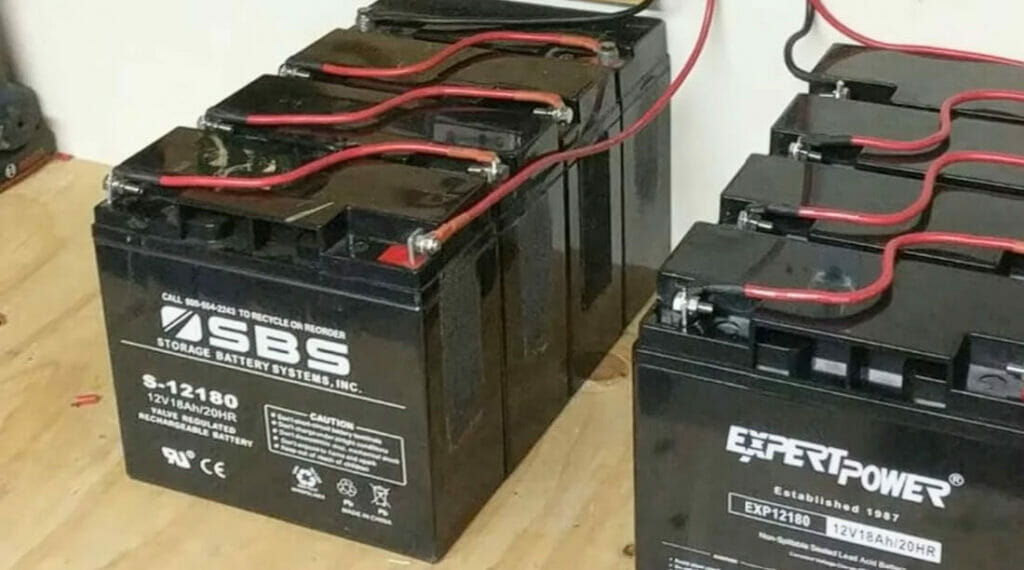
There are a few factors that can affect MCA’s overall importance.
One factor that can affect MCA’s importance is the engine’s size and type. Smaller engines may not require as much cranking power as larger ones.
Additionally, different types of engines may require different levels of MCA. Outboard motors and inboard motors, for instance, may have different requirements.
Another factor to consider is the climate and temperature where the battery will be used.
Colder temperatures can reduce a battery’s MCA, meaning that a battery with a higher MCA may be needed in colder climates to ensure reliable engine starting.
The age and condition of the battery are also determining factors in its MCA. A new battery or one in good condition will generally have a higher MCA than an older or damaged one.
It’s important to regularly maintain and test your battery to ensure it functions properly and has a sufficient MCA for your needs.
Finally, the intended purpose of the battery can also affect the importance of its MCA.
A battery used for recreational purposes, such as powering a trolling motor or stereo system, may not require as high of an MCA as a battery used for commercial or industrial purposes.
What Happens if You Disregard MCA
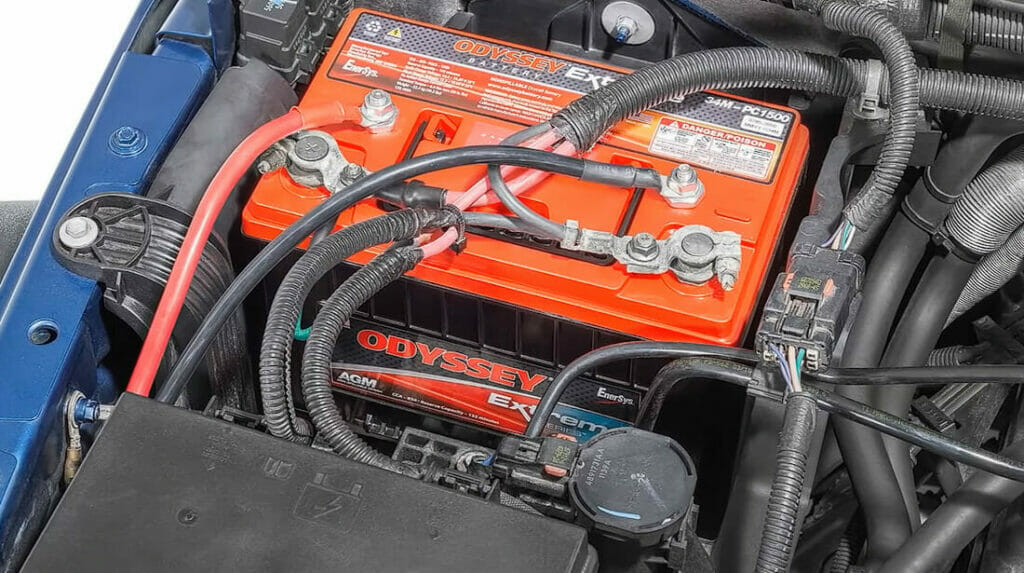
Ignoring your battery’s marine cranking amp (MCA), rating can lead to several issues, some of which can harm your boat and safety.
Here are some of the consequences you may face if you disregard the recommended MCA rating:
- Difficulty starting your engine: As discussed, the MCA rating on your battery determines the amount of power your battery can deliver to start your boat’s engine. If you choose a battery with an MCA rating that is too low, you may experience difficulty starting your engine, especially in cold temperatures.
- Battery damage: Using a battery not designed to handle the electrical demands of your boat’s engine can cause premature battery failure. Your battery may experience problems such as sulfation, corrosion, and acid stratification, which can permanently damage the battery.
- Safety risks: If your battery cannot deliver enough power, it may not start your engine, which can be dangerous when you need to move quickly. For example, a failing battery can prevent you if you need to avoid an obstacle or navigate a crowded marina.
- More frequent replacements: If you choose a battery without considering its MCA rating, you may have to replace it more often than necessary. This can be costly in the long run, leading to more time spent on maintenance and repairs.
That said, it is crucial to consider the recommended MCA rating when choosing a battery for your boat.
Save yourself time and money by ensuring that you select a battery with the appropriate MCA rating for your vessel’s needs.
References
Organizations:
- Battery Council International (BCI). https://batterycouncil.org/
- American Boat and Yacht Council (ABYC). https://abycinc.org/
- BoatUS Foundation. https://www.boatus.org/
Books:
- “The 12-Volt Bible for Boats” by Miner K. Brotherton and Edwin R. Sherman
- “Boatowner’s Mechanical and Electrical Manual” by Nigel Calder
Website Resources:
- The West Advisor. https://www.westmarine.com/westadvisor/
Video References
Dan Richard Fishing
Outdoor Gear
